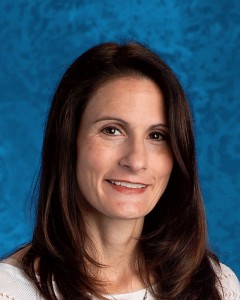When Should Children Read On Their Own?
By Guest Blogger Aimee Picon, Assistant Head of the Lower School and Junior High at Noble Academy
I have a very vivid memory of my mother reading a book aloud to me when I was young. I remember asking her each night to read more as I sat on the edge of my seat. Like most children, I couldn’t wait to hear what would happen next and I reveled in the discussions we had about the book while she was reading. It was the single most profound and impactful reading experience I had as a child. Except, I wasn’t exactly a child; I was 13 years old, and capable of reading all on my own.
Throughout my years as an educator, I have often been asked the question, “When should my child be reading on his/her own?” While potential answers to this question swirl through my mind given each individual child’s development, abilities, challenges and experiences, the answer to it is, never; Or at least ‘never’ in one form or another.
Yes, the knowledge that reading to young children is highly beneficial to the development of language, syntactic structure, and building of vocabulary, has been readily available and heavily researched for many years. The research on reading to older children has clear benefits in building vocabulary, and evaluating listening comprehension (the ability to understand what is read aloud is often at a higher level than the student’s independent reading level.) This can also translate into better written output as well, but the importance is not as stressed once a student can read independently. I feel that we lose sight of the many reasons we should continue to read to or with an older child.
Although my own children are capable readers, I still read to them, or often read what they read on my own. In fact, I’ve become quite well read in the tween genre. I have ventured through Harry Potter, Percy Jackson, The Hunger Games, Divergent and The Maze Runner, all for the sake of the discussion (and maybe to impart some of my wisdom).
As adults, we read the same books that our friends read, and we join book clubs to talk about these books. We discuss the feelings they evoke, the connections that we make from them, the conclusions that we draw, and the life lessons that we learn. Why should our children not be afforded the same type of sounding board?
I want to know if my children understand that the oppression of the districts by the Capitol in the Hunger Games forces these young people to murder each other. I want to be sure that they understand why Severus Snape is both a villain and a hero, and I want to be able to stop them from reading the third book of the Divergent Series because the topic of genetic cleansing is not something I think they are ready for yet. When my daughter cried during the release of a baby in The Giver, I would have had no other way of explaining it in a way that made sense to her had I not read the book to her myself.
These are all things that are covered in a classroom literature discussion. As you can see in this video clip, Brian Kilpatrick is reading to a group of junior high students using the specific vernacular that the novel is written in, and is able to help the students better visualize the events by discussing vocabulary within the context of the novel. Students are exposed to so much during the course of reading a novel, from the inevitable new vocabulary to topics and subject matters they may not have been exposed to before.
Of course, it would be impossible for a parent to read and preview everything, but the importance of our children hearing us read aloud, discussing various perspectives on a book, discovering our excitement about books, and talking through the components that are difficult to delve into is an invaluable experience. So, the next time that you see your child with a new book, read the jacket, ask a few questions to spark some conversations, or just say that you are interested and wonder if you could read a chapter aloud and see where it takes you.
 Aimee Picon is the Assistant Head of the Lower School and Junior High at Noble Academy. She has a master’s degree in Early Childhood Education and is also a Wilson Language certified level two instructor and certified trainer. Learn more about Noble Academy at www.nobleknights.org.
Aimee Picon is the Assistant Head of the Lower School and Junior High at Noble Academy. She has a master’s degree in Early Childhood Education and is also a Wilson Language certified level two instructor and certified trainer. Learn more about Noble Academy at www.nobleknights.org.
*Sponsored by Noble Academy

Years ago, I worked with a woman who read to her children for years. I told myself I wanted to do this. Well, I have. Several of my friends have asked me over the years “You still read out loud to your children?” Yes, I have a middle school student and an elementary student and we have read a lot of different books with them. We have wonderful discussions about them and it has made us all choose books we did not think we would enjoy. Now, my children ask me to read more with them.
thanks for the blog!